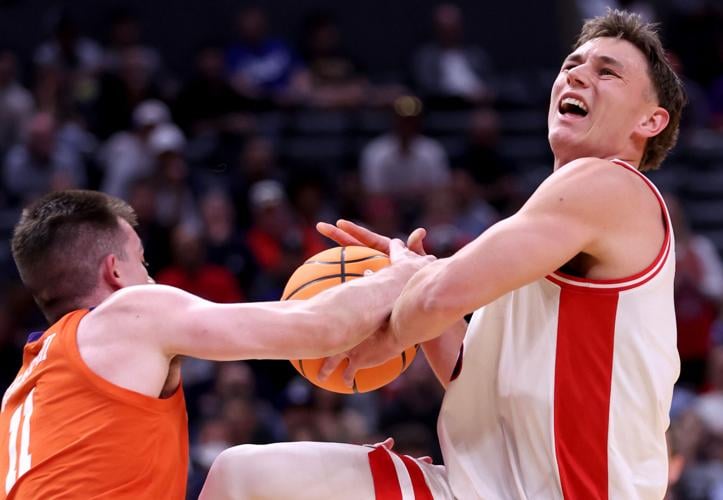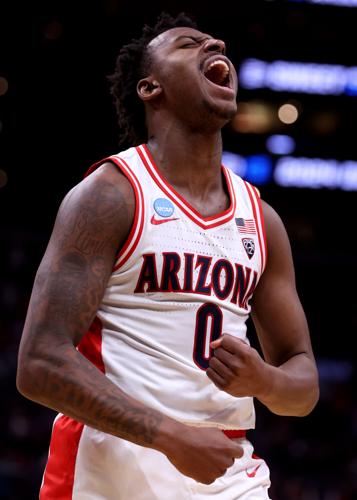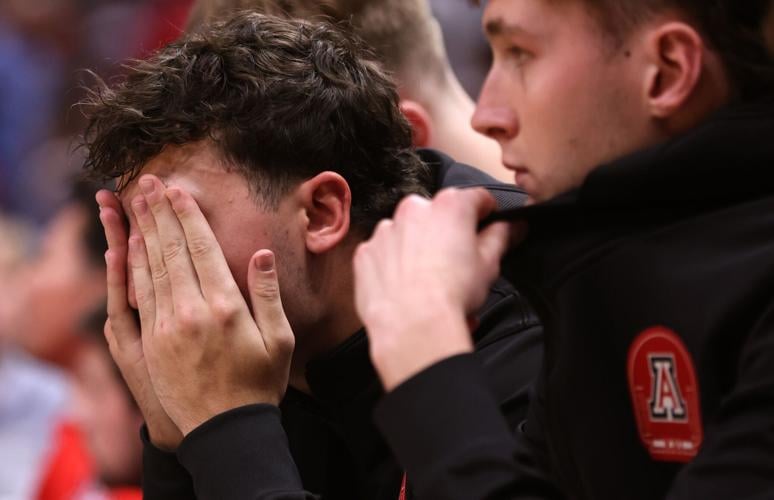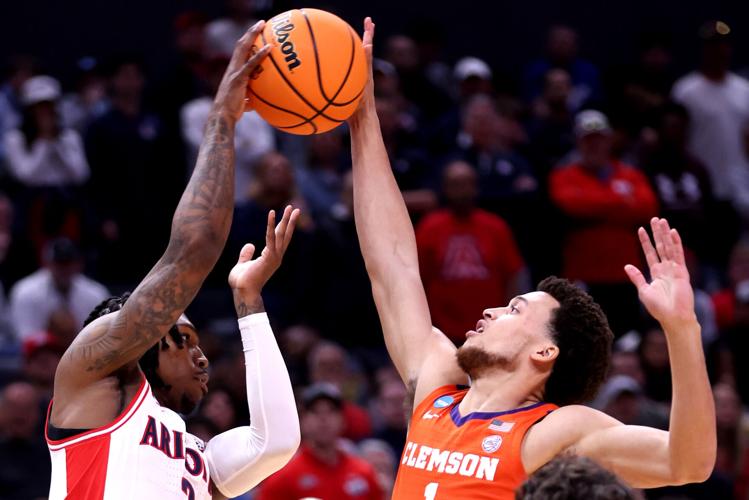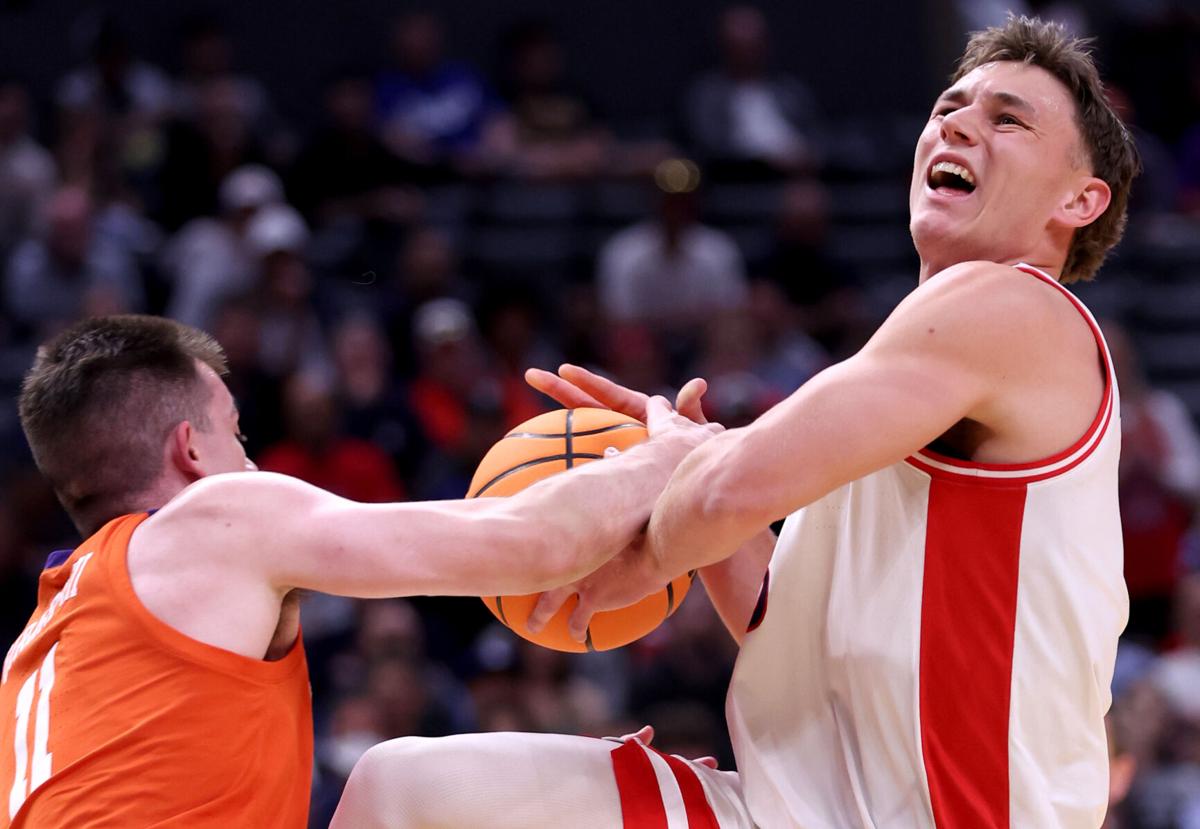March Madness has come to an end for Arizona. Here are five takeaways from the UA’s 77-72 loss to Clemson in the Sweet 16 of the NCAA Tournament on Thursday in Los Angeles:
1. Die by the 3

Michael Lev is a senior writer/columnist for the Arizona Daily Star, Tucson.com and The Wildcaster.
After Arizona made 13 3-pointers against Long Beach State, a school record in NCAA tourney play, I wrote the following:
“But the Wildcats can’t fall in love with the 3-ball. They can’t view it as the solution to the zones they’re bound to face moving forward.”
Arizona didn’t heed that warning. And now the Wildcats’ season is over.
The UA made only 5 of 28 3-point attempts against Clemson’s mix of man and zone defense (much more of the latter over the final 12 minutes or so). The Wildcats’ 17.9% success rate from beyond the arc was their worst mark of the season. Their 28 3-point attempts were their second most — behind the 35 they took vs. LBSU.
Arizona has shot under 20% from 3-point range four times over the past two seasons. The Wildcats are 0-4 in those games, including both NCAA Tournament ousters.
Many of those shots were what you’d consider “open” or “uncontested.” But were they the best shots available — especially considering the alternatives?
Oumar Ballo was 7 of 10 from the floor. He finished with 15 points and a game-high 15 rebounds. Ballo struggled again from the foul line (1 for 7), but the Tigers were in so much foul trouble late that they were basically letting him score when he got the ball down low.
The Wildcats had success when they drove to the basket. They were 13 of 26 on shots categorized as layups. They outscored Clemson 40-30 in the paint. And they got to the line 25 times. UA players other than Ballo were 16 of 18 from the stripe.
Tommy Lloyd runs one of the most prolific offenses in the sport. But zone defenses befuddled this UA team. It’s a problem Lloyd and his staff must solve this offseason.

Clemson guard Chase Hunter picks a pass right out of the hands of Arizona guard Caleb Love in the first half of the Wildcats’ Sweet 16 matchup with the Tigers on Thursday in Los Angeles.
2. Let down by their guards
You can’t win big in March without standout guard play. Arizona just didn’t get it from its starting trio of Kylan Boswell, Pelle Larsson and Caleb Love.
Those three combined to make only 8 of 33 shots, including 2 of 20 from 3-point range. They had six assists and five turnovers.
Their collective struggles didn’t exactly come out of nowhere.
Boswell scored five or fewer points in five of Arizona’s final six games. He was just 5 of 32 from the floor in those five contests. He had a team-worst minus-10 plus-minus rating against Clemson.
Larsson had his second-worst shooting performance of the season against the Tigers, making only 2 of 9 attempts (1 of 6 from 3). He’d been shooting OK, but he hadn’t played his best ball down the stretch, committing 16 turnovers in the five games preceding the Sweet 16.
Love fell off a cliff over the final six games, shooting just 28.6% (24 of 84). He shot 43.7% over the first 30 games.
Love was 0 for 9 from 3-point range against Clemson. He was 5 of 9 from inside the arc, with most of those attempts coming on drives and floaters.
Those opportunities were there, even against the zone. Love didn’t take them, at least not often enough.
Arizona will have a different-looking backcourt next season, with at least two new starters. The leading candidates for those spots are on the roster. And one of them was the Wildcats’ best player in the tournament.
3. Bodacious Bradley
Looking for a bright spot amid the March malaise that has consumed Tucson yet again?
I submit Jaden Bradley.
Arizona wouldn’t have had a chance at the end — it was a two-point game with 49.4 seconds left — if not for Bradley’s heroics.
Unlike several of his teammates, Bradley rose to the moment. He scored 18 points, his second-highest output of the season, while continuing to play the dogged defense that has become his trademark.

Arizona guard Jaden Bradley lets go a roar after drawing a foul on his basket against Clemson in the first half of their Sweet 16 game,
The uber-athletic 6-3 guard had a team-high two blocked shots, giving him six in three NCAA tourney games. He had one in the preceding 33 contests.
On offense, Bradley regularly drove into the paint and drew contact. He got to the line a season-high nine times, making eight. Since Feb. 8, Bradley attempted at least four foul shots in nine of 14 games, including six of the final seven contests.
Bradley also made a team-best two 3-pointers in four attempts. Both of those figures were season highs. Bradley had taken just 24 3-pointers all year, making 11.
While others clearly felt the pressure — a topic we’ll address later — Bradley seemed unfazed. He wanted the ball and the responsibility that comes with being a point guard.
Bradley and freshman KJ Lewis — another athletic, maniacal defender who’s still developing on the offense end — are building blocks for 2024-25.
4. On the other end …
It wasn’t just offense that cost Arizona against Clemson.
The Wildcats had far too many defensive breakdowns on a night when they couldn’t hit an outside shot.
On three occasions, the Tigers got wide-open looks at or near the basket off of baseline inbound plays. That shouldn’t happen in Game No. 36 to a team with four seniors in its eight-man rotation.
Clemson also had success working a two-man game with its bigs, PJ Hall and Ian Schieffelin, with one or the other slipping to the bucket for open layups.
Arizona cranked up the intensity late in the first half, and that carried over into the second. Still, Clemson shot 49.2% from the floor and had just 10 turnovers. That was the sixth-highest shooting percentage by a UA opponent this year. The five teams that shot better had at least 12 turnovers and averaged 13.6.
The Wildcats struggled this season against teams that executed efficiently in halfcourt sets — particularly those that ran pick-and-rolls and pick-and-pops.
Lloyd went to the Ballo-less unit — featuring five players who can switch — after Bradley’s 3 made it 72-70. It didn’t work, as Chase Hunter drove for a layup and got fouled.
Finally, after Love’s floater made it 75-72, the Wildcats got completely discombobulated. They failed to foul the dribbler, Joseph Girard III. They also didn’t cover Dillon Hunter downcourt. His layup with nine seconds left put the game out of reach.
5. Cats vs. ’dogs
A sports data firm called Stats Perform posted the following nugget Thursday night:
“The Arizona Wildcats have now lost to a team seeded at least 4 spots below them in each of their last 6 NCAA Tournament appearances. That’s the longest streak by any team since seeding began in 1979.”
The downside of being the higher seed was again evident in L.A.: All the pressure was on Arizona, and it showed.
Nobody outside the state of South Carolina expected Clemson to win. Hardly anyone expected the Tigers to make it this far. They had nothing to lose and played that way.
The Wildcats were tight from the start, falling into a double-digit hole. With every 3-pointer that clanged off the rim or missed the hoop entirely, the pressure mounted.

Arizona guard Grant Weitman (15) and the Wildcat bench ride out the last few minutes of their 77-72 loss to Clemson in the NCAA Tournament on Thursday in Los Angeles.
Was sixth-seeded Clemson a better matchup for second-seeded Arizona than third-seeded Baylor would have been? On paper, yes. But Arizona-Baylor would have been a tossup. The Wildcats might not have felt the same burden.
Maybe, as someone suggested on social media, Arizona will benefit next year from being in the Big 12. The Wildcats undoubtedly will lose more games along the way, and less might be expected of them in the NCAA Tournament.
We’ll see. Anything that conceivably could end this recurring nightmare would be welcomed.
Clemson held off Arizona in the second half to advance to the Elite Eight of the 2024 men’s NCAA tournament. Watch the extended highlights from the Tiger’s Sweet 16 win here. (March Madness YouTube)


